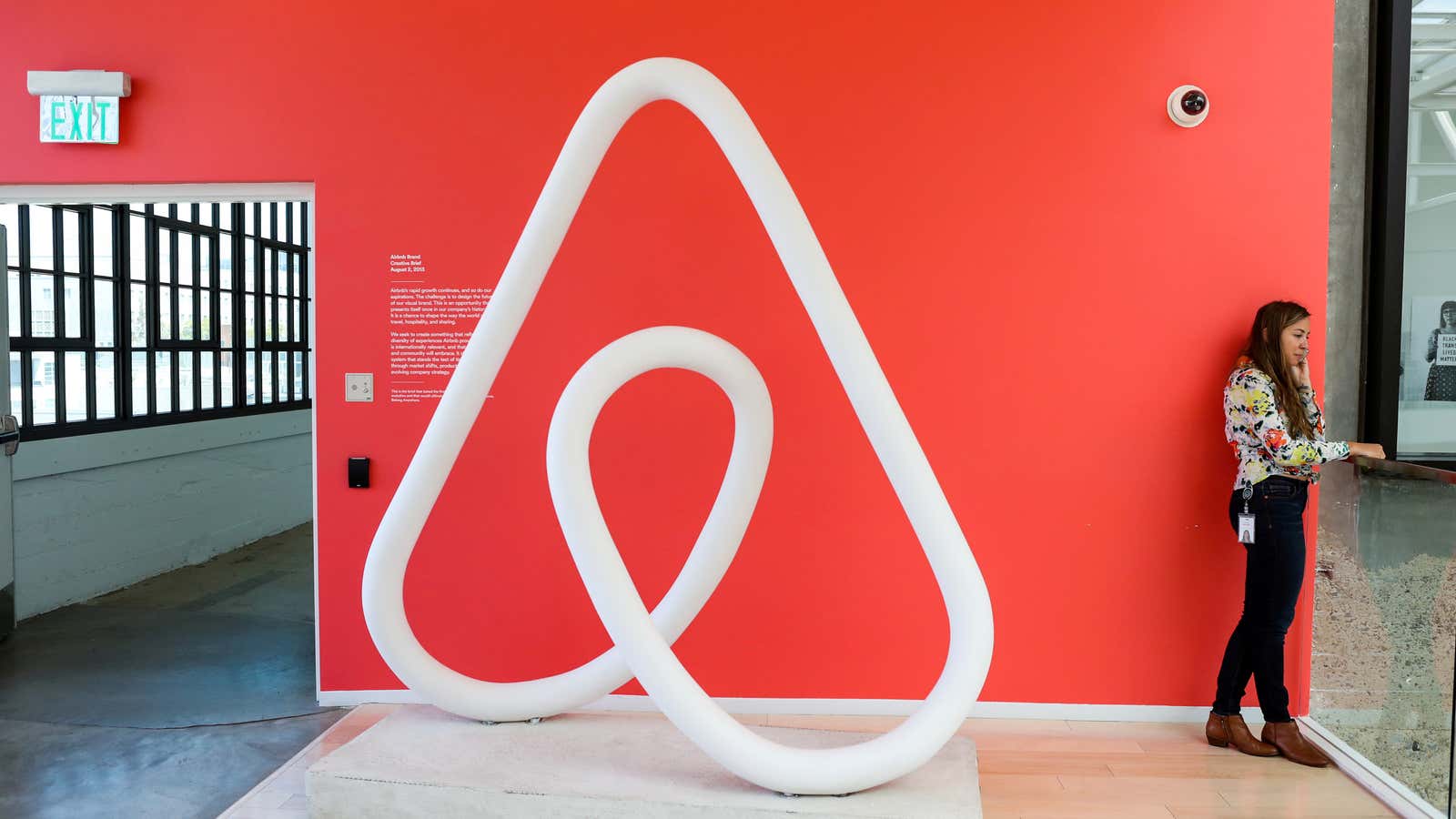Next to Steve Jobs, the person most associated with Apple’s revolutionary aesthetic is Jony Ive, the company’s former chief of design.
Ive, who pioneered elegance and simplicity in electronics, left Apple last year to found his own design company, LoveFrom. Yesterday Airbnb announced “a multi-year relationship” with Ive’s firm.
At first glance, it’s not obvious what use Airbnb might have for Ive’s talents. At its essence, it’s a platform that serves as a matchmaker between homeowners and vacationers. Yes, it’s important the website look nice and users enjoy browsing through potential destinations. But does that require a designer of Ive’s horsepower?
There are a few possible reasons for the partnership. One is that CEO Brian Chesky is a design geek. He and Airbnb co-founder Joe Gebbia attended the Rhode Island School of Design, and Gebbia attributes the application of “design thinking”—essentially, thinking like a product user to solve business problems—with saving the company from ruin in its first year. If you’re into design and you have a chance to work with the design world’s Michael Jordan, you do it.
Another answer lies in Chesky’s memo announcing the collaboration. Ive was retained to help design “the next generation of Airbnb products and services,” a vague but intriguing hint of the future Chesky envisions for Airbnb on the eve of its much-anticipated initial public offering in December.
Clearly, Chesky sees Airbnb as more than a hospitality broker. The company launched Airbnb Experiences in 2016 (and Online Experiences this year, in reaction to the Covid-19 pandemic) to offer customized tours and lessons. It’s also quietly been exploring ways to have more control over the lodgings it offers on its site, partnering with real estate developers to build units designed to be used as short-term rentals. Airbnb’s initial foray into branded apartments in Florida and Tennessee went south, however, resulting in the company suing the property developer. Still, diversifying its revenue streams with other tourism-related ventures is a natural evolution as cities around the world, as well as the hotel industry and its unions, increasingly push back against Airbnb’s primary business model.
Airbnb’s transition from rental platform to broader travel company makes particular sense when considered through the “jobs to be done” theory of management guru Clayton Christensen. Christensen, the late Harvard business professor better known for his theories on disruption, argued successful businesses don’t perform tasks but solve problems. Customers “hire” a company to perform a job. Viewed through this lens, the transition of Netflix from a DVD-by-mail service to movie studio makes sense because viewers are hiring the company to provide entertainment. The mechanism is less important than the end result.
It may be many years before Airbnb’s apartment-share model falls by the wayside, as Netflix’s DVD-by-mail business did, but it’s not far-fetched to see the company morph into a provider of inclusive experiences, a Club Med for the 21st century. And if it’s going to start by offering travelers new “products and services,” they might as well be well designed.
